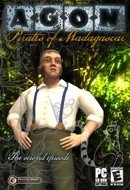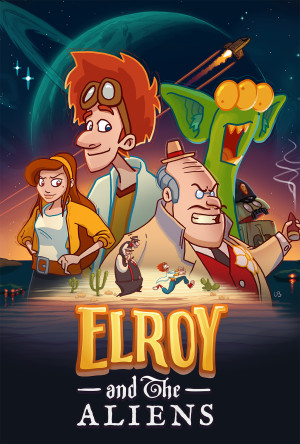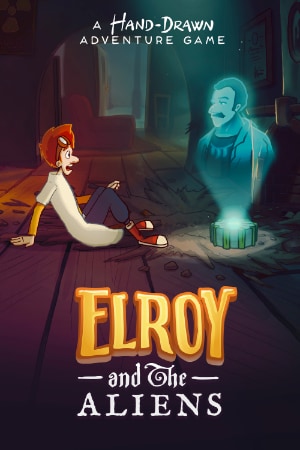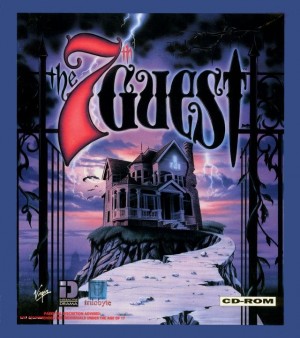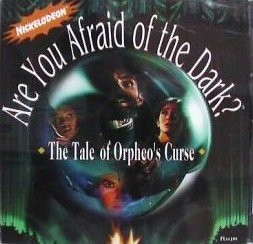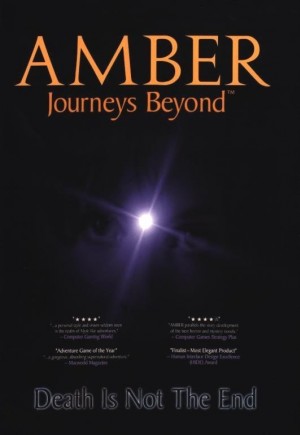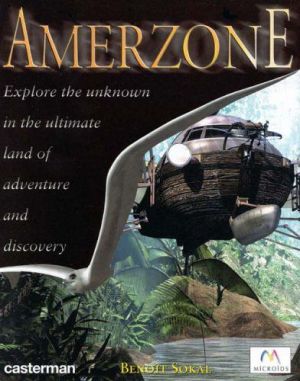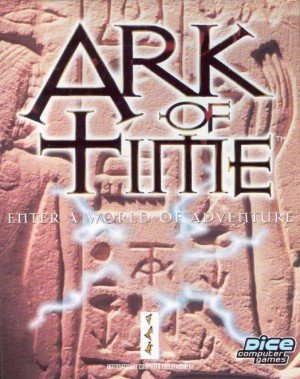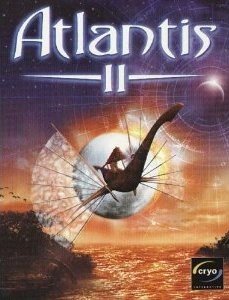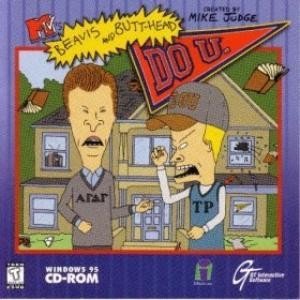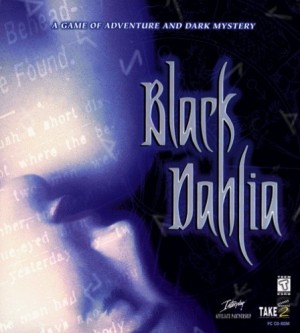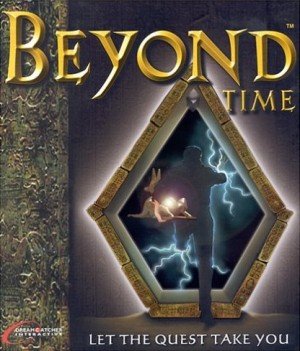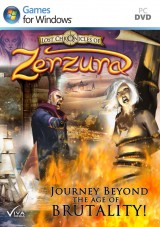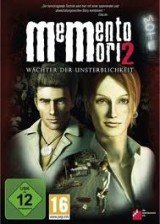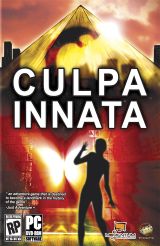Review for AGON: Pirates of Madagascar
Checkers? Nah. Chess? Nope. Backgammon? Hardly.
Fanorona... now THAT'S an obscure (yet real) board game worth crossing half the globe to play. At least, it is for Professor Samuel Hunt, the historian from the British Museum whose mission in 1903 is to track down twelve accursed games in an effort to unravel the sinister legend of the AGON. After having begun his adventure in London, before braving the trials of the wintry Lapland tundra in the previous installments, Hunt now doffs his parka and sails for tropical climes in Episode 3: Pirates of Madagascar.
The name AGON may still be unfamiliar to many people, which is a shame, because it's truly one of the pioneers of adventure gaming. Although this is not the first attempt at a serialized adventure, other efforts in the past have died a quick and inglorious death. The Forgotten and Zelenhgorm are perhaps the two highest-profile "series" that never got past the debut title, leaving players hanging with unfinished plots and bad tastes in their mouths. Such early failures have created a skeptical attitude about the viability of episodic gaming, resulting in something of a Catch-22. Gamers are reluctant to invest in the early episodes of a serial for fear of it collapsing, and the lack of player investment is the very thing that causes such projects to collapse. It takes an impressive product and a serious developer commitment to overcome that vicious cycle. So is AGON poised to become the champion of episodic adventures? The jury is still out on that question, but if Episode 3 is any indication, the Hungarian developers at Private Moon Studios are definitely on the right track, and showing no signs of going down without a fight.
In Pirates of Madagascar, our returning middle-aged professor pulls ashore near a small fishing village. Believing the board game he seeks to be in the possession of the local chief, Hunt soon discovers that the game has long since been stolen by pirates and hidden somewhere in the jungle. Accused of being a (rather well-mannered and articulate) pirate himself, but without a map where X marks the spot, Hunt must decipher clues and solve a complex series of puzzles to locate the buried "treasure".
If the plot sounds a little simplistic, that's not a criticism. Perhaps "modest" is a better word, as it serves the game's ambitions well. Each episode of AGON is a tightly focused, self-contained adventure with an emphasis on exploration and puzzles, and Madagascar is no exception. That's not to say that the overall narrative is neglected, but it's relegated to various lengthy documents that have no real impact on the individual episode. While this prevents any real sense of immersion in the larger story, it also ensures that players can pick up any episode at any time without feeling too lost, so it's a necessary tradeoff. Fortunately, the quality of Episode 3 allows it to stand successfully on its own.
Even more than the previous episodes, Pirates of Madagascar is incredibly polished, with rock-solid stability and production values that rival, and even surpass, many full-length adventures. Although independently produced and self-published, make no mistake: AGON is anything but a garage game. From the moment you arrive on the island and begin to absorb the scenery, you can't help but appreciate the care the artists have taken with the graphics. The backgrounds are remarkably detailed and vibrantly coloured, from the pastel waters and dusk skies to the dense foliage of the jungle, making each scene worthy of the attention the gameplay requires. Although using a first-person, node-based presentation, there is enough subtle animation throughout the game to remind you that this is more than a slide show. In the opening scene alone, the sea has gentle, lapping waves that regularly crawl up the beach and recede, while birds circle overhead, and fishing nets sway in the breeze.
Cutscenes have also been ramped up considerably in this episode, both in quantity and quality, so anyone thinking that a downloadable game can't be generous with cinematics couldn't be more wrong. The game also makes clever use of other techniques to vary the presentation, including an illustrated storybook depiction of a pirate's tale, while a voiceover narration fills in the details. Even the transitions from node to node seem more natural in AGON than in many other commercial titles, as one scene dissolves smoothly into another, giving the impression of movement without the need for lengthy animations. These kinds of touches may seem small individually, but together they effectively draw you into the adventure, rather than expose the game's limitations.
Aurally, Madagascar matches the excellence of its predecessors. The voice acting of the few main characters (and Hunt in particular) is skillfully performed, and ambient sounds are plentiful in creating a convincing tropical atmosphere. Music is another key area that AGON has handled wonderfully all along, and this element shines once again in Episode 3. Here the pleasant ethnic arrangements are used sporadically, but provide a distinct cultural flavour to suit the locale.
So... the game looks great and sounds great. Now you're waiting for the "but", right? Well, not so fast. The gameplay in Madagascar is also very solid, and easily improved over the last episode. There are more inventory puzzles in this installment, making for a better balance between practical solutions and abstract problem solving this time around. Several puzzles require piecing together clues from multiple sources, which proves challenging, but certainly fair. My main complaint is that the clues are sometimes clumsy and inconsistent. In one case, Hunt may observe that he's done what he needs to do to move on, while the next time he says absolutely nothing, leading you to believe there's more to discover. Still other times, he’ll make comments that could actually mislead you about the next step required. You'll also find yourself doing some pixel hunting on occasion, and repeating actions in the hope of stumbling onto a new hotspot that you've unknowingly triggered. Since the game's environments are fairly limited in size, this doesn't prove to be a huge obstacle, but it does tend to interrupt the game's progress artificially.
Unfortunately, where Pirates of Madagascar shoots itself in the pegleg is its repetitive sound puzzle/maze combination. Yes, the triple-decker of nasty, you'll need to blindly track sounds through the jungle several times, and in a completely illogical fashion in every instance but the first. The "maze" aspect is somewhat deceptive, as you don't actually need to map your progress at all, but because you'll be maneuvering through a pathless jungle, you'll feel at a decided disadvantage in choosing your way. While some players with good speakers or headphones will breeze through these sequences fairly comfortably, it's an absolute certainty that others will have a great deal of difficulty, so the decision to include them was a poor one.
My other disappointment is the board game itself. As was the case with Tablut in the previous game, Fanorona is not only the narrative goal of the episode, but a mini-game that must be beaten, as well. Having achieved that, you can access the game at any time to play against the computer, or online through Private Moon's website, using NetBoard to play live against other gamers. However, while this is purely subjective on my part, I feel very little fondness for Fanorona, as the computer accomplishes too much, too quickly, leaving you no time to properly follow its moves, let alone prepare. Unlike slower games, where I can adequately strategize, here I felt the urge to shut my eyes, hold my breath, and pray the computer hadn't completely wiped me out at the end of each turn (although that's how I play Monopoly, too). So although it didn't actually take me too long to beat, Fanorona simply didn't strike me as very enjoyable to play. On the plus side, there are difficulty settings specifically for the game, should anyone have significant problems overcoming it.
There are a few ongoing issues with AGON that I'd still like to see addressed as the series continues. The first is the control system. Unlike most node games with rotational panning, this game requires clicking and holding the mouse button to pan. Since so much of the game is spent looking in every direction, this is a needless and aggravating complication, and more than once I accidentally clicked myself ahead a node when I merely meant to look around. How much simpler and cleaner to add a right mouse toggle as other games have done.
Another common lament about AGON--though perhaps an unavoidable one--is that the episodes are a little too short. Pirates of Madagascar is longer than the previous two games, but still isn't likely to stretch many players beyond 5-7 hours, at most. At $10 U.S. per episode, this is solid value for the money, but there may simply not be enough gameplay to convince some players it's worth it. When the series was first launched, the plan was to release new episodes every two months, but the third episode was released many months behind that schedule, and the fourth will be at least as delayed. It's a long time to wait for a few hours of gaming. Add to that the reluctance of many gamers to pay for a game only available as a download, and the obstacles facing AGON are beginning to mount.
Private Moon is already seeking creative ways to address that problem, however, and attract new gamers in the process. They have recently bundled the first three episodes onto a CD-ROM entitled AGON: The Mysterious Codex, which is the version used for this review. Like the download versions, all spoken dialogue in the Codex is in English, but includes additional subtitles in French, German, and Hungarian. This bundle is currently available only in Hungary, and soon in several other Eastern European countries, but the developers are still seeking other international opportunities. I sincerely hope they're able to secure more publishing deals, as the series definitely deserves greater exposure, and the increased sales may be necessary to ensure the series is continued to the end.
It's difficult to tailor recommendations for the third part of an ongoing series, as so much depends on one's attitude towards episodic gaming. For those who played the first one or two installments, and perhaps abandoned the series during the frustrating wait for new content, Pirates of Madagascar is definitely worth picking up. Despite a few design blemishes that work against it, the improvements over the second game are noteworthy, and it's obvious that Private Moon Studios are learning as they go (one of the fundamental benefits of serial development). If you've never played AGON because of an aversion to serials, Episode 3 isn't likely to convert you. However, if you've been waiting to see if the series crashed and burned before taking a chance on it... it hasn't. It's alive and kicking, and looking better than ever off the coast of Africa. It's heading to Spain next, but there's still time to catch up, and you may just find it worth the trip.


